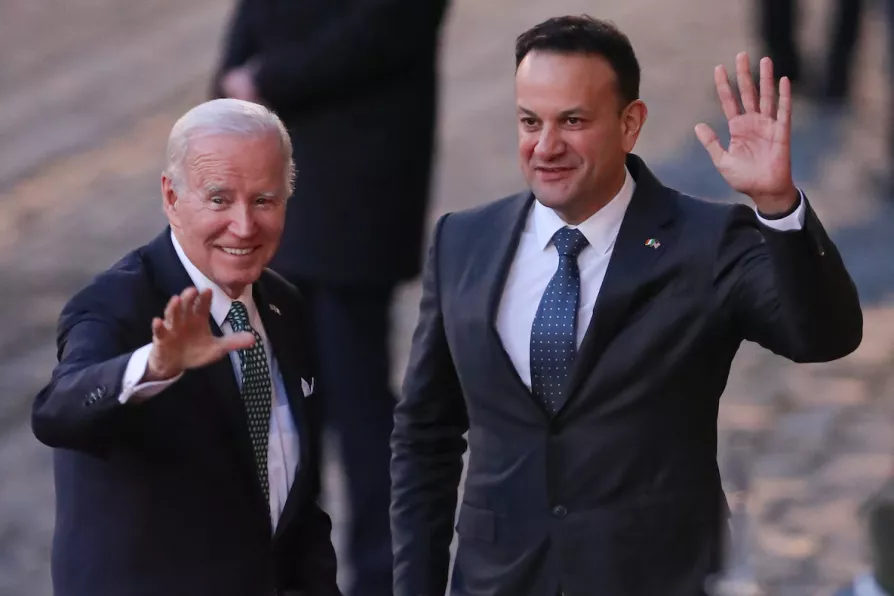Mass mobilisations are forcing governments to seriously consider imposing sanctions and severing ties — even in places like Australia and the Netherlands — despite continued arms shipments to Israel’s war machine, writes RAMZY BAROUD

 IN THE HEADLINES: US President Joe Biden (left) is greeted by Taoiseach Leo Varadkar as he arrives for a state dinner at Dublin Castle, on day three of his visit to Ireland, Thursday, April 13
IN THE HEADLINES: US President Joe Biden (left) is greeted by Taoiseach Leo Varadkar as he arrives for a state dinner at Dublin Castle, on day three of his visit to Ireland, Thursday, April 13
THE Tory press was mainly hostile to Joe Biden during his visit. This is not a mark of strength, but of powerlessness.
It now seems perfectly acceptable for British politicians to attack Biden simply for being Irish-American.
The media widely implied that he could not be trusted simply because of his Irishness. His critics on this front included some of our “respectable” media. The BBC was not immune.

Every Starmer boast about removing asylum-seekers probably wins Reform another seat while Labour loses more voters to Lib Dems, Greens and nationalists than to the far right — the disaster facing Labour is the leadership’s fault, writes DIANE ABBOTT MP

DIANE ABBOTT explodes the anti-migrant myths perpetrated by cynical politicians and an irresponsible mass media

Our Foreign Secretary now condemns Israel in the Commons, yet Britain still supplies weapons and intelligence for its bombing campaigns — as the horror reaches perhaps the final stage, action must finally replace words, writes DIANE ABBOTT MP

The BBC and OBR claim that failing to cut disability benefits could ‘destabilise the economy’ while ignoring the spendthrift approach to tens of billions on military spending that really spirals out of control, argues DIANE ABBOTT MP













